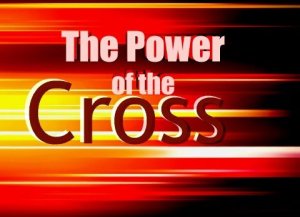Power Ministry In The Epistles
Walter R. Bodine, “Power Ministry In The Epistles: A Reply to the Evangelical Cessationist Position.”*

The Power of the Cross: The Biblical Place of Healing and Gift-Based Ministry in Proclaiming the Gospel
In his review of four books favorable to the so-called “signs and wonders” movement Tim Stafford voices an objection that is frequently raised. It is the assertion that “… the New Testament epistles show such slight interest in miracles … .”1 The implication often drawn, though not explicitly by Stafford, is that this indicates the temporary nature of the “sign gifts” (i.e., healing, miracles, prophecy, tongues, interpretation of tongues), a view usually known as the “cessationist position.”2 Otherwise, as this line of reasoning goes, we would expect more attention to them in the epistles.
I wish to argue here that this is not the case at all. First of all, I doubt that it is fair to speak of a “slight interest” in miracles in the epistles. At least five epistles devote explicit attention to the gifts of the Spirit (Romans 12:3-8; 1 Corinthians 12-14; Ephesians 4:1-16; 1 Thessalonians 5:19-22; 1 Peter 4:10-11). Wherever the gifts are detailed, those that are regarded from the cessationist viewpoint as temporary are intertwined with those that are regarded as permanent. No distinction is drawn or implied in the New Testament,3 and the space devoted to the subject is hardly insignificant.
I recognize that the emphasis of the epistles is elsewhere. Their primary concern is with building faith and character. They were written to believers by people who had ministered to them and who deeply cared to see them spiritually established so as to be able to live productively within the Christian community and in society. In other words, the epistles had a primary focus; and it was other than that of supernatural gifting. It was on character development and godly living. This does not call into question the continuance of any of the gifts any more than it questions the ongoing reality of other functions of believers which are likewise not emphasized in the epistles. Such would include, for example, evangelism, relief to the poor, social action against oppression, etc.
The gospel is God’s power which is displayed among men.


